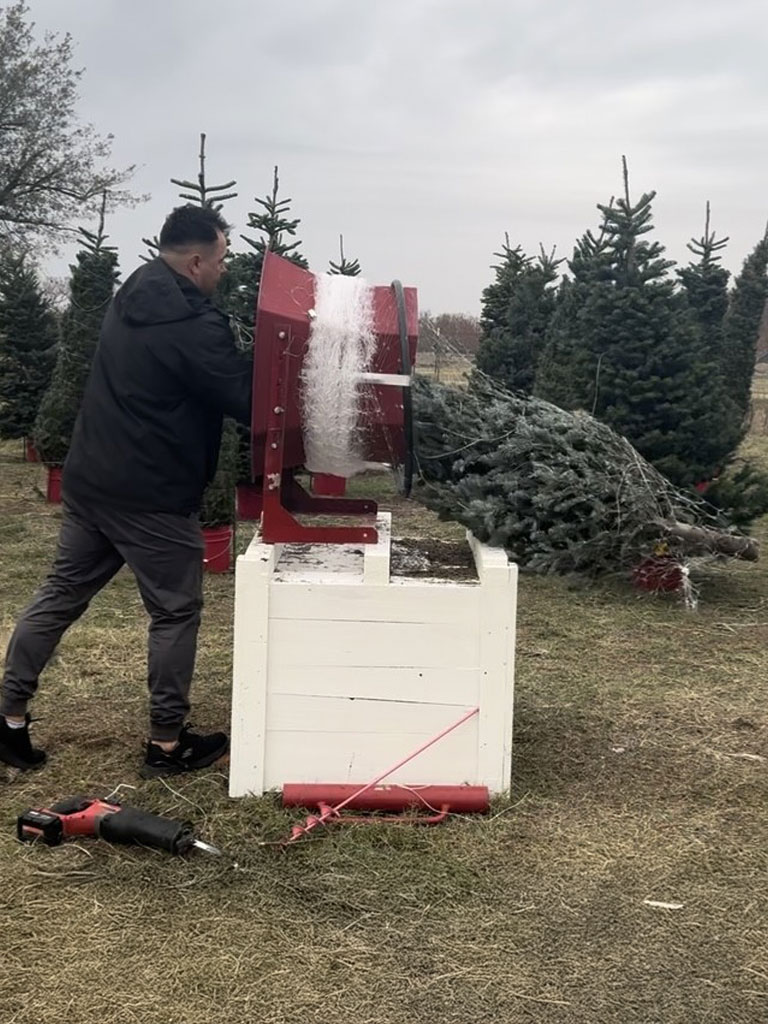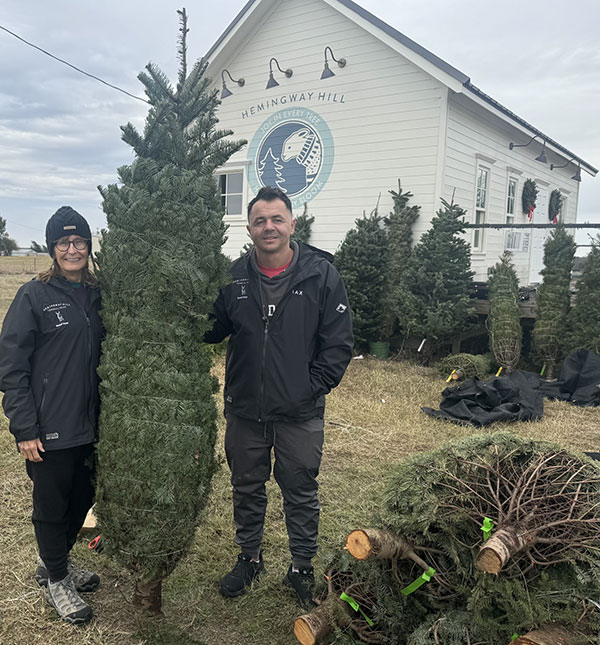
Why Real Trees Bring the True Spirit of Christmas Home
If you ask Santa or his reindeer, you’ll hear the same thing: nothing compares to a real Christmas tree. Unless someone in the family is allergic to cedar (and Santa extends his kindest sympathy to those who are), the big man and his team always choose trees that are natural, fragrant, and free from harsh chemicals.
Reindeer say the fresh scent of pine helps them pull Santa’s sleigh faster. They find the aroma invigorating, and I think you will too. There’s nothing quite like a real Christmas tree filling your home with that unmistakable evergreen fragrance.
A Farmer’s Perspective on What’s Really on Your Tree
I’m Jennifer Loyall, founder of Hemingway Hill, a regenerative flower and Christmas tree farm in Terrell, Texas. We’re open to the public three times a year for our U-Pick tulip, flower, and Christmas seasons.
When I first started learning about growing Christmas trees in the South, I attended a workshop where the main varieties were Virginia Pine and Leyland Cypress. What shocked me most wasn’t the trees, but the long line of large jugs filled with strong chemicals used to keep them alive.
Because of the toxicity, growers must get a special license and wear full protective gear and a respirator just to apply them. I remember thinking, that doesn’t sound very merry or bright. Most people have no idea how many chemicals are used on certain Christmas trees before they ever reach their living room.
Last year, I stopped at a store that was selling “discount” Christmas trees. Their needles weren’t green but a dull gray-green color. They had clearly been sprayed. Ever since that day, I always remind people to know where your tree comes from before you bring it home.
That same advice applies to imported flowers too. Many are treated with unregulated chemicals. When you’re done with them, don’t compost—dispose.
Why We Choose Washington-Grown Noble and Nordmann Trees
At that same workshop, I also learned about sprays used to make trees look greener. That’s when I decided Hemingway Hill would take a different direction, focusing on healthier soil and trees that grow naturally in climates suited to them.
That choice led us to partner with farms in Washington state, near the Canadian border, where Christmas trees thrive in cool, rainy conditions. The Noble Fir, known as the king of Christmas trees, and the beautiful two-toned Nordmann Fir both grow naturally there. Their needles are full, lush, and far less likely to shed, and their fresh evergreen scent fills your home with holiday cheer.
No offense to North Carolina’s Frasers—they’re lovely—but Nobles and Nordmanns from Washington are simply stunning. The higher altitudes and consistent rainfall make them some of the healthiest, most naturally grown trees you’ll ever find.
Why We Don’t Grow Certain Trees in Texas
Here in our Zone 8 climate, some things thrive, like tulips, sunflowers, and native wildflowers, but certain trees just don’t. Trying to force a Virginia Pine to survive in Texas heat means relying on too many chemicals, and even then, the needles will drop daily.
That’s not the kind of tree I’d want in my home or anywhere near a curious pet. The last thing anyone needs is a trip to the emergency vet on Christmas morning.
The Hemingway Hill Holiday Experience
At Hemingway Hill, just a short drive from Dallas, Forney, and Kaufman, we’re all about authentic, hands-on farm experiences.
- U-Pick Tulips – Tulipville (End of February through Mid-Late March): Wander through a field of tulips and pick your own tulips.
- U-Pick Flowers and Sunflower Extravaganza (Memorial Day Weekend through July): Enjoy the colors of summer and pick flowers that catches your eye.
- Christmas at Hemingway Hill: Choose your real Christmas tree and we’ll cut it for you. Then stay awhile, roast Texas-grown chestnuts, make s’mores, and enjoy a warm cider donut and coffee (available Friday through Sunday).
We’re also introducing new seasonal workshops, including our Tulip Planting School on November 8 and Beekeeping for Beginners in March 2026.
Choose a Responsibly Grown Tree This Season
I truly believe that a responsibly grown Christmas tree is a safer, healthier choice for your family, and it’s better for the planet too.
If you’d like to reserve a tree or plan your visit to Hemingway Hill, visit hemingwayhill.com to learn more. You can also email us anytime with questions about availability and pickup dates.
And remember, Santa and his reindeer prefer real trees. I hope to see you at Hemingway Hill this holiday season.

